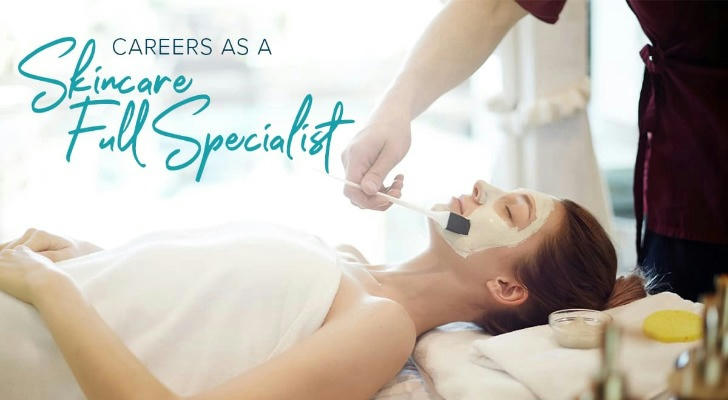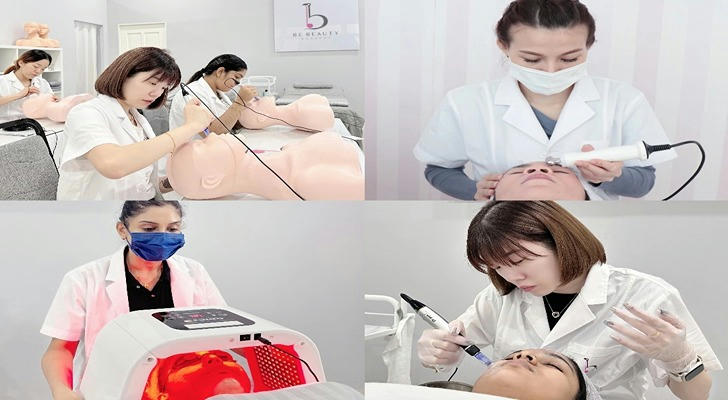Skin Care Course Guide: How to Choose the Right Learning Path for You
The skin care industry is growing rapidly in the United States, providing a wealth of career opportunities for individuals who are interested in pursuing a career in the beauty industry. Choosing the right skin care course is the first step towards success. This article will provide you with a comprehensive guide to choosing skin care courses to help you find the learning path that best suits you.

I. Understand the types of skin care courses
1. Basic skin care courses
Basic skin care courses are suitable for beginners and cover the basic knowledge and skills of skin care, including skin type identification, basic skin care processes, and treatment of common skin problems. These courses are usually shorter and suitable for learners who want to quickly master skin care skills.
2. Professional skin care courses
Professional skin care courses provide more in-depth training and cover advanced skin care techniques such as laser treatments, microneedling treatments, chemical peels, etc. These courses are suitable for learners with a certain foundation who want to improve their skills and enter the professional skin care industry.
3. Skin care license courses
Skin care license courses are a must for entering the skin care industry. These courses not only provide comprehensive skin care skills training, but also include the necessary theoretical knowledge and practical operations to help learners pass the state-level skin care license examination.
4. Skin Care Salon Management Course
For learners who want to open or manage a skin care salon, the Skin Care Salon Management Course provides the necessary business and management knowledge, including customer relationship management, financial planning, and marketing.
II. Key factors in choosing a skin care course
1. Course content
When choosing a skin care course, first find out whether the course content is comprehensive and whether it covers the skin care techniques you are interested in. For example, if you are interested in laser treatment or microneedling treatment, you should choose a course that includes these contents.

2. Faculty
Excellent teachers are the key to successful learning. Find out whether the instructors of the course have rich experience in the skin care industry and teaching experience, and whether they can provide personalized guidance and support.
3. Practice opportunities
Skin care is a very practical skill, so it is important to choose a course that provides enough practice opportunities. Some courses may include internship opportunities in professional skin care salons to help learners accumulate practical work experience.
4. Certification and License
Make sure the skin care course you choose can help you obtain industry-recognized certification or license. These certifications and licenses not only prove your professional skills, but also increase your competitiveness in the job market.
5. Course duration and flexibility
Choose a suitable course duration and learning mode based on your personal time and learning goals. Some courses offer full-time study, suitable for learners who want to complete their studies quickly; while others offer part-time or online learning, suitable for people who need flexible study schedules.
III. How to prepare for your skin care course
1. Research courses and schools
Before choosing a skin care course, it is necessary to conduct sufficient research. Understanding the curriculum, faculty, student evaluations, and other information of different schools can help you make a more informed choice.
2. Prepare learning materials
Prepare necessary learning materials such as skin care tools, teaching materials, etc. according to the course requirements. Some courses may provide tool kits as part of the course, while others require students to purchase them on their own.
3. Make a study plan
Make a reasonable study plan to ensure that you can complete the course tasks on time. If you choose online learning, it is especially important to arrange your study time reasonably.
4. Build a learning network
Join a skin management learning community or forum to exchange experiences and learning experiences with other learners. This will not only help you solve problems encountered during the learning process, but also provide you with valuable industry information and resources.
IV. Development trend of the skin management industry in the United States
1. Technological innovation
With the development of science and technology, the skin management industry is also constantly innovating. For example, high-tech means such as laser treatment, microneedle treatment and radio frequency technology are being widely used to provide customers with more effective skin care solutions.
2. Personalized service
Consumers have an increasing demand for personalized services. Skin management professionals need to provide tailored care solutions based on their customers' skin types, needs and lifestyles.
3. Environmental protection and sustainable development
Environmental protection and sustainable development have become important trends in the industry. More and more skin management products use natural ingredients to reduce the impact on the environment. Professionals need to understand these trends and choose environmentally friendly products to meet the needs of consumers.

The skin care industry offers a wide range of career opportunities for individuals interested in pursuing a career in the beauty industry. By understanding the different types of skin care courses, key factors in choosing a course, and preparing for the course, you can find the learning path that best suits you. I hope this article will provide you with valuable guidance to help you achieve career development and success in the skin care industry.
